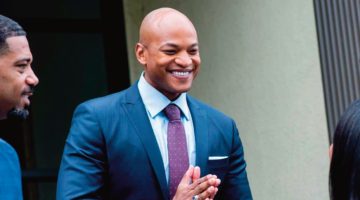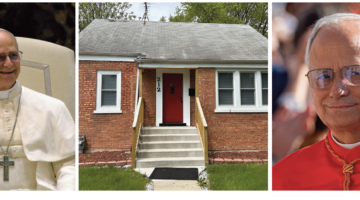 PORT-AU-PRINCE, Haiti (AP) — The United States has no plans to halt aid to earthquake-ravaged Haiti in spite of a crisis over who will be the nation's next leader, but does insist that the president's chosen successor be dropped from the race, U.S. Secretary of State Hillary Rodham Clinton said Sunday.
PORT-AU-PRINCE, Haiti (AP) — The United States has no plans to halt aid to earthquake-ravaged Haiti in spite of a crisis over who will be the nation's next leader, but does insist that the president's chosen successor be dropped from the race, U.S. Secretary of State Hillary Rodham Clinton said Sunday.
Clinton arrived Sunday in the impoverished Caribbean nation for a brief visit. She met with President Rene Preval and earlier met with each of the three candidates jockeying to replace him.
Only two candidates can go on to the delayed second round, now scheduled for March 20. The U.S. is backing an Organization of American States recommendation that the candidate from Preval's party, government construction official Jude Celestin, should be left out in favor of populist rival Michel Martelly.
The top U.S. official at the United Nations, Susan Rice, said recently that “sustained support” from the United States required the OAS recommendations be implemented.
Many Haitian officials, including leaders of Preval's Unity party and Martelly, interpreted that to mean the U.S. was threatening an embargo and cutting off aid.
Clinton flatly rebuffed that suggestion. “We're not talking about any of that,” she said Sunday. “We have a deep commitment to the Haitian people,” she told reporters. “That goes to humanitarian aid, that goes to governance and democracy programs, that will be going to a cholera treatment center.”
Asked if there were any set of circumstances that would prompt Washington to cut off aid, Clinton said, “At this point, no.”
Still, she insisted that the United States would press the recommendations by international monitors after a disorganized, fraud-ridden first-round presidential vote in November. They determined that Preval's preferred successor, Celestin, finished last and should drop out. Celestin has yet to do so.
Haiti is in a deepening and potentially destabilizing political crisis. The announcement of preliminary results from the disputed first round led to rioting in December. Final results are expected to be announced Wednesday.
Just five days after, on Feb. 7, comes the constitutional end of Preval's five-year term. A law passed by an expiring Senate last May would allow him to remain in power for an extra three months but it is not clear if his government would continue to be recognized by donor countries. Preval has said he does not want to hand power to an interim government.
“That's one of the problems we have to talk about,” Clinton said. “There are issues of a continuing government, how that can be structured. And that's what I'm going to be discussing.”
Hundreds of thousands of people remain in homeless camps and major rebuilding has not started. Underlying issues such as land-tenure reform and the development and reconstruction of government institutions have barely been addressed. Massive piles of rubble and collapsed buildings remain throughout the capital.
Meanwhile, a cholera epidemic that started outside the quake zone and has killed more than 4,000 people continues to rage. Clinton visited a tented treatment center Sunday.
She said reconstruction has been steady “but not adequate to the task that we are confronting.”
“The problems are significant,” Clinton told the pool of reporters traveling with her. “Like what do you do with all the rubble? It's a really big problem.”
Meanwhile, former Haitian President Jean-Bertrand Aristide is eligible for a passport but has not applied for one, Haitian officials said Monday.
That followed a letter from the ousted leader's U.S. lawyer, Ira Kurzban, telling officials at Haiti's foreign affairs and interior ministries that he understood they had agreed to issue Aristide a diplomatic passport.
“I kindly request that his diplomatic passport be issued immediately and that plans for his return commence immediately,” he said. The letter was forwarded to reporters.
But Interior Minister Paul-Antoine Bien-Aime said in an official letter, sent later Monday, that no passport had been requested. “It appears that, to date, neither ministry had received a request for issuance or renewal of passports from the former President Jean-Bertrand Aristide,” he wrote.
Aristide is a former priest and liberation theologist who rose to become Haiti's first democratically elected president. He was overthrown in a coup, restored to power, then ousted again in 2004. His return was forced by the threat of a U.S. military invasion; debate has raged for years over what role the U.S. played in his departures.












No Comment